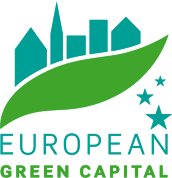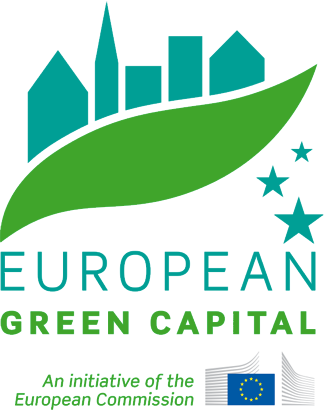Bristol's energy experiment
Community energy is a radical new idea shaking up sustainable power, and Bristol is ahead of the game. How is it evolving in our city?
A wind turbine at Avonmouth port
Photo: Chris Bahn
Bristol’s energy-saving communities
Already, lighting and heating Bristol’s homes produces 16% less CO2, the gas behind global warming, than Nottingham, Sheffield or Leeds.
Bristolians use less energy per person than people in other comparable English cities
If we can meet council plans to cut another 80% by 2050, Bristol’s power will be almost totally carbon neutral.
“Domestic energy data shows Bristolians use less energy per person than people in other comparable English cities,” says Jerome Thomas from Bristol Energy Network.
“Our energy use has fallen more quickly, suggesting better awareness of energy efficiency than people in other parts of the country.”
But it’s not just about saving energy. How it’s made is crucial. Bristol’s thriving community energy sector is a key part of this.
What is community energy?
Community energy is low carbon, renewable heat and power, produced locally.
The sources, like solar power from Bristol’s roofs, are cheap to distribute; miles of cabling from distant, carbon heavy coal stations are avoided.
Who’s making it?
Community-owned energy cooperatives like Bristol Energy Cooperative and OVO Energy are involved. You can join the coops, helping fund new renewable projects, or apply for a share of the energy.
“Many cities have strong energy groups; Oxford or Bath. But only Bristol has so much grass roots creativity that it has a Bristol Energy Network just to hold all the groups together,” says David Saunders, from Bristol Power CIC.
Why should we support community energy?
Saunders believes it’s the only sustainable energy model.
Installing solar panels at home
1. Do I need planning permission?
Solar panels on homes often do not need planning permission, as they are classed as “permitted development”.
Planning permission is needed for non-domestic buildings and can also be needed if your home is listed or in a conservation area.
Further information is available on the National Planning Portal solar panel advice page.
2. What financial support is available?
Financial support for solar generation is available through the Department of Energy and Climate Change (DECC) electricity Feed in Tariff.
To qualify for this support and ensure your installation is to high quality, make sure that your installer is accredited via the Microgeneration Certification Scheme.
“Cities used to generate their own gas and electricity,” he says.
“There’s room for well over 1GW of solar energy on city roofs, which is the aim of Bristol Solar City.
1GW is well over peak daytime energy consumption, but would not generate all the energy we need year round. The complete solution requires storage systems.”
The savings
Saunders estimates solar panels on roofs save an average £150 per year.
An overall community energy deal involving a community energy tariff and rooftop solar energy could save £250/year off the average fuel bill, about 20 to 25%.
“OVO Communities is a solution for community groups, that want to cut out the middle man and become an energy supplier themselves,” says Andrew Mack, Head of Strategy at OVO Energy.
“OVO’s aim is to set up 100 community energy supplier partnerships across the country, ultimately serving over a million customers.”
OVO helps manage how the power is paid for. It sets up the community energy tariff, and checks the price is right.
“The average consumer is blissfully unaware, and why shouldn’t they be, except they are being ripped off for energy by the Big 6,” says Saunders.
“I have confidence to say that Bristol aspires to have lots of solar and the country’s cheapest electricity.
“In Green Capital year we might well start to demonstrate how this could be so.”
“We launched OVO Communities because we really believe the UK energy market is ripe for big changes,” concludes Mack.
“We want to provide a platform where people can come together, create their own systems, build their own innovations and create genuine partnerships.
“We are really excited to have the opportunity to literally put the power back into the hands of local people.”
Community energy also involves how we think about power.
“While some in Bristol struggle to keep warm or pay their energy bills, too many of us do not value energy and waste it,” comments Martin Bigg, Professor of Environmental Technology at the University of the West of England.
“In the future we will need to value energy more: the costs to the environment and to ourselves; significantly improving the ways we generate and use energy. The choice is in our hands.”





